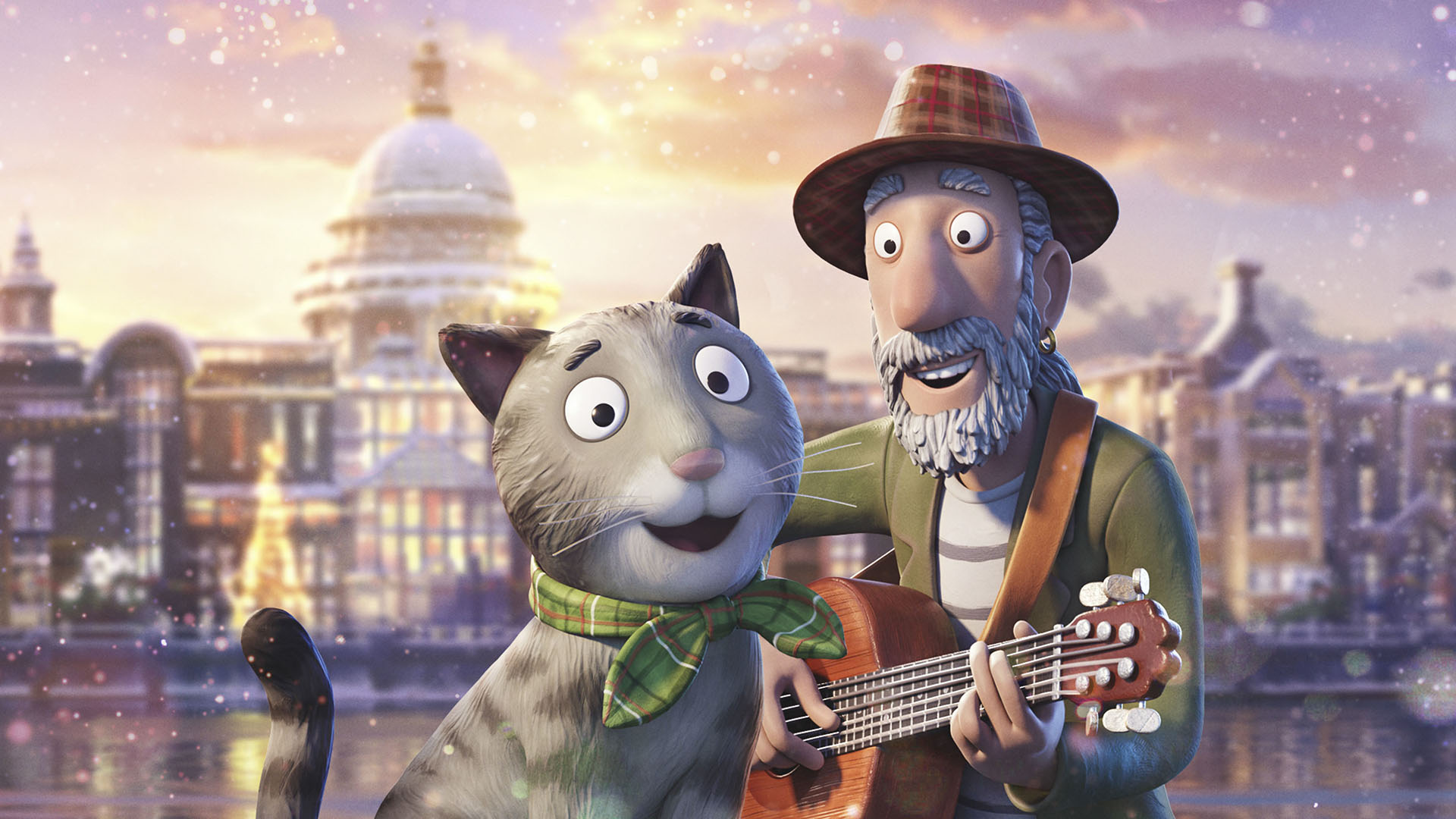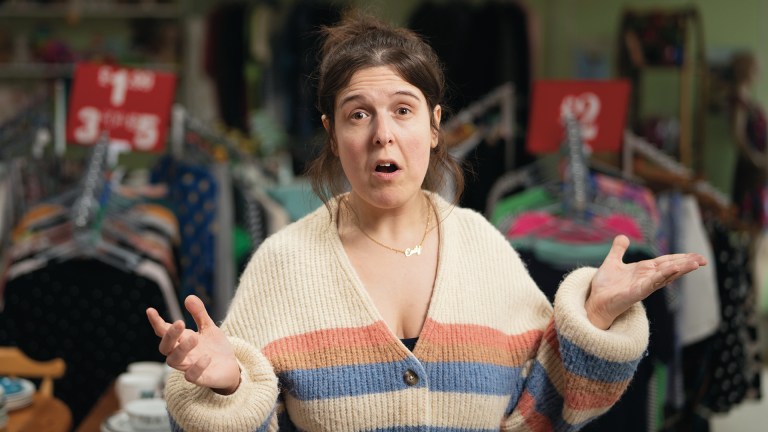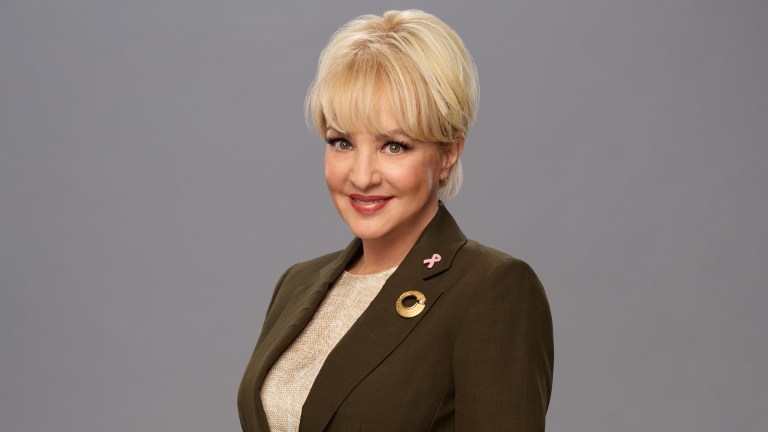The special relationship between people experiencing homelessness and their animal companions is put centre stage. As the story plays out, they encounter trouble, are separated, loyalties are tested – it’s beautifully told, full of compassion.
In the original book, there is a question over whether Fred is, or has been, homeless. So we asked Julia Donaldson. “Not necessarily – though in the film version he is. Initially, anyway,” she says.
“Fred is not defined as a homeless person,” Scheffler adds. “But yes, he’s sleeping in a park. I think the idea was to leave it up to the readers or viewers – but he could be homeless and parents could start a conversation about why somebody might not have a home.
“I like that there are questions that are not answered. Is Fred homeless? There’s the famous question: where is the mother of the Gruffalo’s Child? I like the openness. It would be nice if it starts conversations between parents and children.”
Sheffler is not often drawn into political chat. He prefers to let his work do the talking. But he was especially.
“I do enjoy the subtlety of Julia’s messages about solidarity, caring for people, helping people, getting lost and being found,” he says. “There are so many subjects there. I’m happy to illustrate her stories because she does it in a very entertaining and funny way that I agree with.”
Advertising helps fund Big Issue’s mission to end poverty
Sheffler has been living in London for 40 years. Although he wanted to set the original book of Tabby McTat in a recognisable London, this was, he says, overruled by editors lest it diminish global sales. For the TV version, there were no such worries. So we see Parliament and the Millennium Bridge, the huge townhouses near the park where Fred and Tabby McTat sleep. London and its street life is a major new character in the story.
“There’s a bit of urban squalor,” says Sheffler. “Because kids see it in a modern city. There is dirt and rubbish so I try to reflect it without making it too depressing.
“Homelessness seems pretty bad here at the moment. So it feels like a good time for this story to be on television. But it’s purely accidental that it is happening now, when Suella has been making these comments about ‘lifestyle choices’. I think she’s an awful politician with awful views. We know what causes homelessness – it was an awful thing to say.”
Books like Donaldson and Scheffler’s help widen horizons. The Gruffalo’s Child and The Snail and The Whale show young, small creatures setting forth into the big wide unknown world, finding their courage and their voice. The Smeds and The Smoos highlights that difference should be celebrated not feared. While Room On The Broom quietly suggests we should help those in need and Stick Man is about resilience.
“I bloody love those stories,” says narrator Jodie Whittaker, recent star of BBC One’s hard-hitting prison drama Time and, of course, Doctor Who.
“Julia and Axel’s books are so beautiful. These are books I really love. All my nieces, nephews, godchildren and my kids now – that’s their childhood. So to be able to be a voice in Tabby McTat is absolutely beautiful.
Advertising helps fund Big Issue’s mission to end poverty
“You start out enjoying the relationship with the busker and the cat and their journey. But what’s brilliant about this book is that it is really about much bigger things. And that is exactly what you want your kids to be reading and learning. It expands their worlds and touches on experiences they’re going through.”
Tabby McTat airs on BBC One on Christmas Day at 2.35pm.
This article is taken from The Big Issue magazine, which exists to give homeless, long-term unemployed and marginalised people the opportunity to earn an income. To support our work buy a copy!
If you cannot reach your local vendor, you can still click HERE to subscribe to The Big Issue or give a gift subscription. You can also purchase one-off issues from The Big Issue Shop or The Big Issue app, available now from the App Store or Google Play










